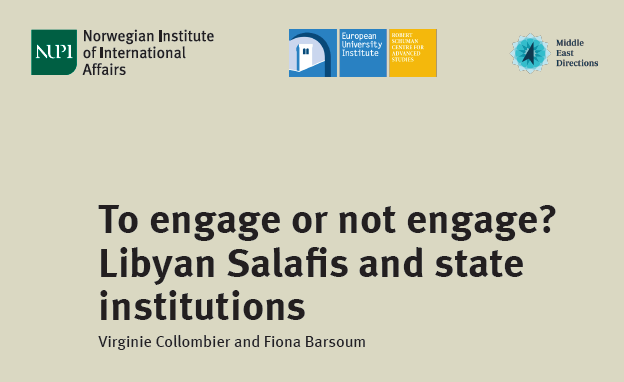
What different strategies have Libyan Salafists employed in the post-2011 period for engaging with state? How have these played out in different political contexts?
This research brief by Virginie Collombier and Fiona Barsoum takes examples from Libya’s “political” and “quietist” Salafis to highlight how the strategies of ostensibly apolitical Salafis have proved more effective in the longer-term in gaining influence over certain areas of state policy.
This paper is published in collaboration with the Norwegian Institute of International Affairs (NUPI)in the frame of the Hybrid Pathways to Resistance in the Islamic World project (HYRES), that studies the interaction between Islamist movements and the state in the cases of Iraq, Lebanon, Libya and Mali.



